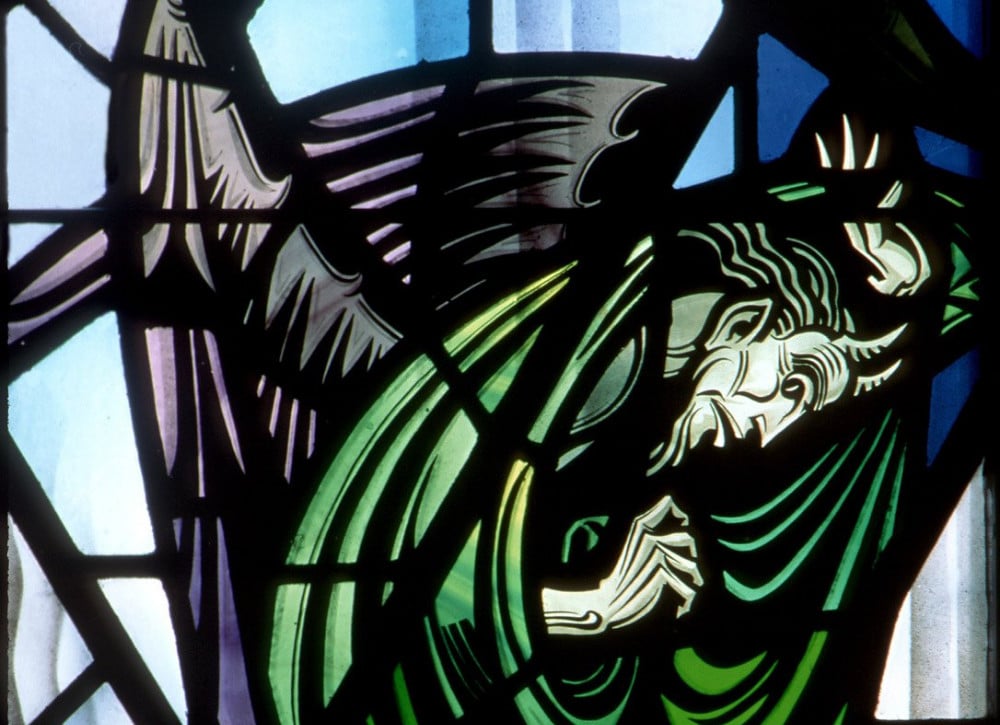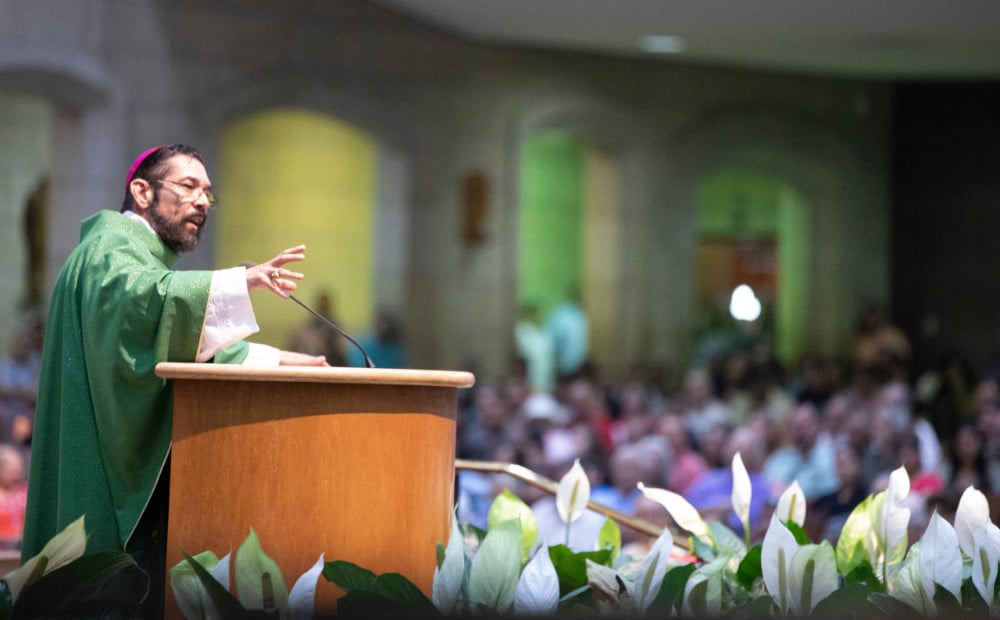 Question: Newer Bibles, even Catholic ones, translate Genesis 3:15 as, “I will put enmity between you and the woman, and between your offspring and hers; They will strike at your head, while you strike at their heel.” But my older Catholic Bible says, “She shall crush thy head, and thou shalt lie in wait for her heel.” My sister-in-law, who is a Pentecostal, says this is more proof that Catholics think Mary saves us and is more important than Jesus. But even modern Catholic Bibles have now shifted to using “he” or “they” rather than “she.” Is my old Catholic Bible wrong? I can’t sort all this out.
Question: Newer Bibles, even Catholic ones, translate Genesis 3:15 as, “I will put enmity between you and the woman, and between your offspring and hers; They will strike at your head, while you strike at their heel.” But my older Catholic Bible says, “She shall crush thy head, and thou shalt lie in wait for her heel.” My sister-in-law, who is a Pentecostal, says this is more proof that Catholics think Mary saves us and is more important than Jesus. But even modern Catholic Bibles have now shifted to using “he” or “they” rather than “she.” Is my old Catholic Bible wrong? I can’t sort all this out.
— Samantha Fitzhugh, online question
Answer: This question can be answered from a number of perspectives. Grammatically, the Hebrew text is ambiguous, since the pronoun ![]() (hi or hu) can mean “he,” “she” or “it.” In the sentence, it is not clear, then, to whom the pronoun refers — the woman who is Satan’s enemy or her “seed” who is her offspring. So, from a simple grammatical point of view, either “he” or “she” are legitimate translations.
(hi or hu) can mean “he,” “she” or “it.” In the sentence, it is not clear, then, to whom the pronoun refers — the woman who is Satan’s enemy or her “seed” who is her offspring. So, from a simple grammatical point of view, either “he” or “she” are legitimate translations.
From a strict soteriological (theology of salvation) view, the one who crushes Satan’s power is ultimately Jesus, who alone is our savior. Hence, the “seed” here is Christ Jesus, and the woman is Mary, who brought forth our Savior (cf. Gal 4:4-5; Heb 2:14; 1 Jn 3:8). Thus, this soteriological view prefers to use “he” as the pronoun.
Historically and traditionally, however, “she” has been almost the constant translation down through the centuries. Many of the ancient Fathers of the Church, such as Augustine, Ambrose and Gregory the Great, saw Genesis 3:15 in a very Mariological way and interpreted the Hebrew pronoun as “she.” In the fourth century, St. Jerome gave us the first official Latin translation of the Scriptures (often called the Vulgate). He translated the Hebrew of Genesis 3:15 into Latin as ipsa (she). And in the 16th century, the earliest English translation from the Latin Vulgate, the Douay Rheims Bible, was published. It translates the passage as: “I will put enmities between thee and the woman, and thy seed and her seed: she shall crush thy head, and thou shalt lie in wait for her heel.”
So, “she” has been the most consistent translation until the modern age. The Protestant communities began preferring “he” or “it” to “she” in the 16th century. Catholics continued to prefer “she” until the 20th century and this was (and still is) displayed in our art, where Mary is often depicted as standing over and upon a snake.
Today, many Catholic theologians and modern Catholic translations have come to use “he” rather than “she,” and they advance various arguments to do so. Catholics are free to hold this.
But, Catholics are also free to prefer the older translations and should resist the pressure to use “he” out of concern that it lessens Christ’s role. All the ancient Fathers of the Church, and all later theologians who are orthodox, have known that Christ is our Savior, not Mary. And yet, they were comfortable understanding the Hebrew text of Genesis 3:15 as “she will crush your head, you will lie in wait for her heel.” This is because the Church has always known that Mary’s role is essential in the work of salvation, even if she is not the Savior. Jesus could have come to earth with a human body and human nature without having an earthly mother, just as he came without an earthly father. But he does not. Hence, Mary is more than a Christmas ornament or a mere supplier of Christ’s body. The Lord sees her role as integral to his work of salvation. It is wrong to separate what God has joined, and the Lord who alone is our Savior has joined the Blessed Mother to his war plan against Satan.
St. Louis De Montfort, in the 18th century, reflected the role of the Blessed Virgin Mary and why she is so central in the battle against Satan and will by God to be integral to crushing Satan’s power. He wrote: “[It is] not that the wrath and power of God are not infinitely greater than those of the Blessed Virgin, for the perfections of Mary are limited; but first, because Satan, being proud, suffers infinitely more from being beaten and punished by a little and humble handmaid of God, and so, her humility humbles him more than the divine power.”
Msgr. Charles Pope is the pastor of Holy Comforter-St. Cyprian in Washington, D.C., and writes for the Archdiocese of Washington, D.C. at blog.adw.org. Send questions to msgrpope@osv.com.







